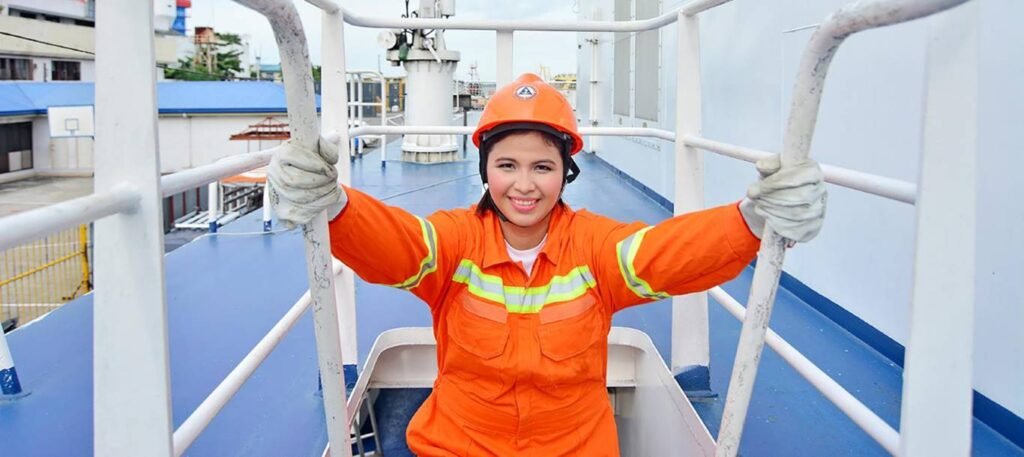The term “get your sea legs” refers to the period of adjustment that people experience when they first become comfortable and steady on a boat or ship while navigating on the water. This figurative phrase means becoming accustomed to the motion and movement of the vessel, which can be disorienting for those who are not used to it.
This term is often used to describe new crew members or passengers on a ship or boat who are just starting to get used to the motion of the vessel. It can also refer to someone who has just started a new job or activity and is still adapting to the new environment and becoming more comfortable in it.
“Get your sea legs” is a metaphor used for the period of adjustment that people experience when they first become comfortable and steady on a boat or ship while navigating on the water.
Although staying and living in a ship may sound exciting, there are several adjustments that one needs to make. The most important adjustment for prospective sailors and cruisers is learning how to get sea legs.
Getting your sea legs is a highly popular catchphrase used in marine lingo that refers to people’s ineptness in maintaining their balance while on ships and boats.
The phrase’s roots are actual interpretations of seafarers being unable to hold on stably while the vessel constantly rollicked on water. Over the years, this root origination has been modified to the simpler idiom of “developing sea legs.”
Developing sea legs can also refer to getting acclimatized to a new environment in a generic and non-marine parlance. Similarly, a unique correlation paradigm exists, with the contextual existence of a medical problem referred to as the “Mal de Debarkquement Syndrome.”
What is “Mal de Debarkquement Syndrome.”
Mal de Debarkquement Syndrome (MdDS) is a neurological disorder that causes a person to feel as though they are continuously rocking or swaying, even when they are standing still on solid ground. The syndrome typically occurs after a person has been on a boat or a ship, but it can also occur after air travel, train travel, or even after a long car ride.
The exact cause of MdDS is not fully understood, but it is believed to be related to the brain’s ability to adapt to changes in motion and the environment. When a person is on a boat or a ship, their brain adjusts to the motion of the vessel, but when they disembark, the brain may continue to perceive that motion, leading to the sensation of continuous rocking or swaying.
Symptoms of MdDS can include dizziness, vertigo, fatigue, difficulty concentrating, and anxiety. The syndrome can have a significant impact on a person’s quality of life, making it difficult to perform daily tasks and engage in normal activities.
Currently, there is no cure for MdDS, but treatments such as vestibular rehabilitation therapy and medication can help alleviate the symptoms. In some cases, the symptoms of MdDS may resolve on their own over time.
Relation between the concept of developing sea legs and the Problem of motion sickness
A very common correlation is drawn between the concept of developing sea legs and the problem of motion sickness while the vessel is on water. This is because unless a person can withstand the constant rollicking of the vessel, their body won’t be regulated as it needs to, thus leading to motion sickness.
Observing, interpreting, and swaying in accordance with the motion of the vessel is known to help people acclimatize to the unstable environment and develop sea legs. However, in the case of shorter cruising expeditions, the learning experience gets curtailed even before individuals can fully grasp the concept of developing sea legs. The advantage of shorter cruising expeditions is that, if individuals can firmly grasp developing sea legs, the experiencing of jelly legs while back on land gets reduced substantially.
A person is said to have developed jelly legs if:
- They feel an unnatural rollicking of the solid ground.
- They feel an unnatural rollicking of their entire surroundings.
- They have an unnatural impulse to clasp the nearest firm object to ensure purchase.
- Their walking actions are choppy and lack timing.
A distinct non-development of sea legs could cause immense problems to individuals, at times more serious than motion sickness. Considering the relevance of the maritime presence in people’s lives, it is necessary that all due precautions and care are taken to learn how to get sea legs.
- Alienbet Casino 100 Free Spins Bonus 2026
- Playolg Casino Login App Sign Up
- Cyber Spins Casino Login App Sign Up
- Free Spins No Wagering Requirements Uk Players
- Dollar 5 Minimum Deposit Casino United Kingdom

